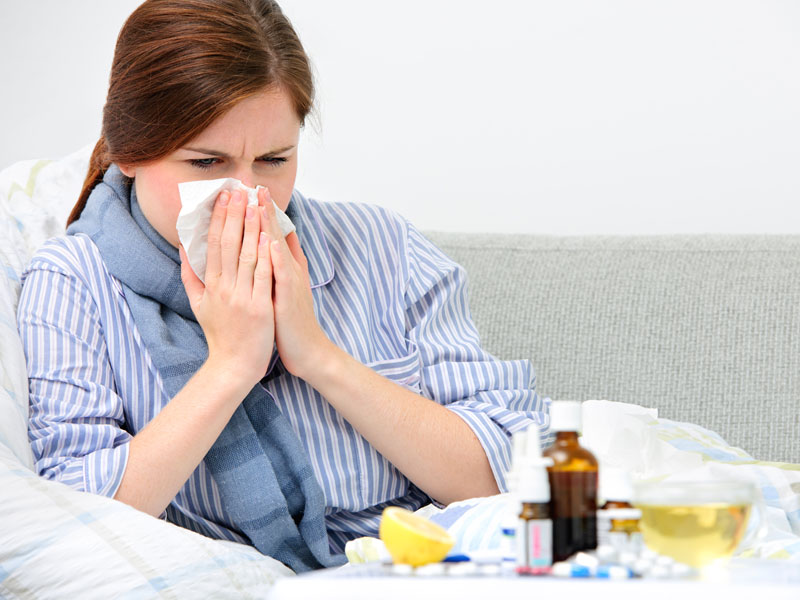Employees coming to work sick put patients in jeopardy

When University of Mississippi Medical Center front-line caregivers come to work sick, they risk spreading the flu virus to a population whose illnesses might already make them susceptible to infection.
Due to an increased number of diagnosed flu cases being reported in clinics and at the emergency departments of UMMC’s adult and children's hospitals, employees are being urged to stay home if they have flu-like symptoms. Also, some visitor restrictions are being imposed during the remainder of influenza season.
The changes are being made to address patient and staff safety. All patients will be allowed no more than two healthy adult visitors at any one time, in both private and semi-private rooms. And it’s recommended that children 12 and under refrain from visiting the hospitals, said Sheila Fletcher, director of infection prevention at UMMC.
Children can “be ill and exhibiting no symptoms, but still be contagious,” Fletcher said.
According to the Centers for Disease Control and Prevention, Mississippi led the nation in the activity level for influenza-like illnesses for the week ending Nov. 18. For that period, Mississippi, then Louisiana, were the only states at the highest end of activity, which is based on the percentage of outpatient visits due to influenza-like illness compared to the average percentage of influenza-like illness visits that occur during weeks with little or no influenza virus circulation.
An influenza-like illness is defined as fever of 100 degrees Fahrenheit or higher and a cough and/or sore throat. Other symptoms can include runny or congested nose, body aches, chills, fatigue, nausea, vomiting or diarrhea.
Faculty, staff, students and visitors at UMMC are being instructed to properly wash their hands and to help prevent the spread of germs by covering their mouths while coughing and sneezing. Influenza, respiratory syncytial virus, whooping cough and other serious respiratory diseases are spread by coughing, sneezing and unclean hands.
“Frequent hand hygiene and controlling coughs and sneezes will help to prevent the transmission of flu and other viruses,” Fletcher said. Signage throughout the Medical Center and memos distributed to employees will help drive home the message, she said.
UMMC is following the influenza guidelines issued by the CDC, Fletcher said. Visitors who are sick or have flu-like symptoms should check with the nurse in charge on the patient’s floor before conducting a visit.
Exemptions are allowed for end-of-life patients, or on a case-by-case basis determined by the patient’s attending physician and/or nurse in charge on the patient’s floor.
The CDC strongly advises people to avoid close contact with individuals who are sick; to stay home when they are sick; to avoid touching their eyes, nose and mouth; and to use an alcohol-based hand rub if soap and warm water aren’t available for frequent hand-washing. The agency also advises people to clean and disinfect frequently touched surfaces at home, work or school, especially when someone is ill.


